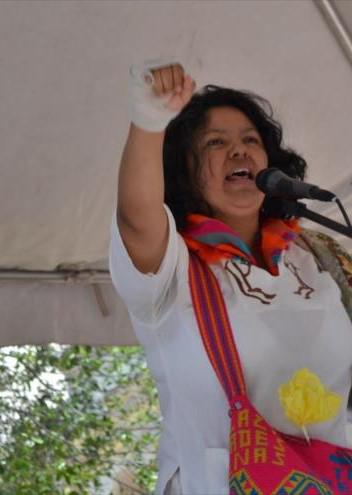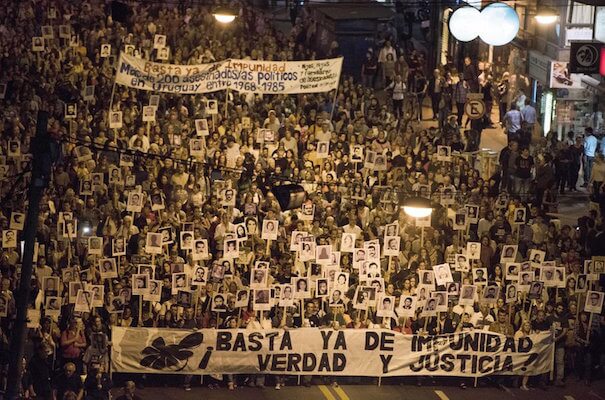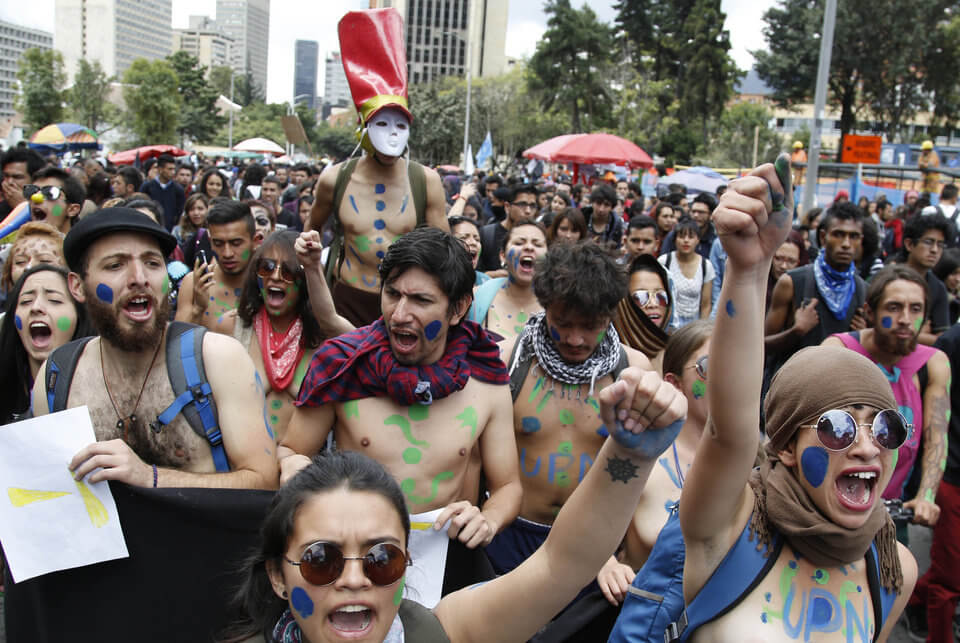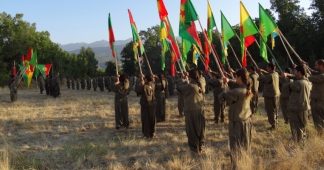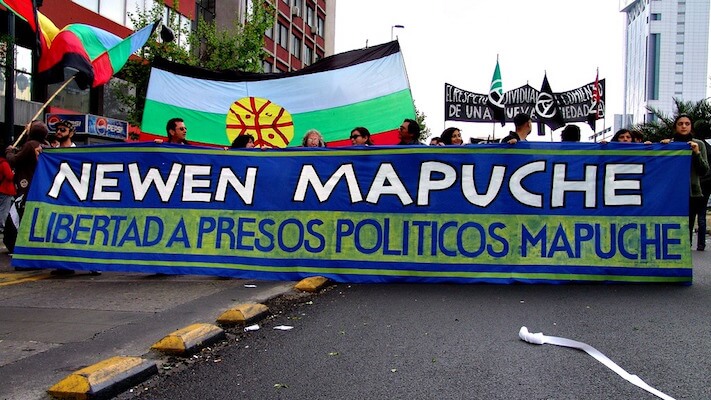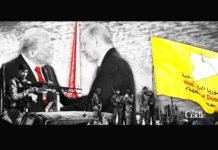By Andrés Figueroa Cornejo / Source: Resumen Latinoamericano / September 11, 2016
With the participation of several political and social organizations and over 200 self-convened people, a march named ‘From Memory to Power’ was held on September 11, 2016, on the anniversary of the military coup. It started at 11 am, at the General Cemetery (a symbol of memory) and ended at the Plaza de Armas square (a historical scenario of rebellion and struggle) in Santiago.
Unlike the traditional march convened by the Relatives of Disappeared Detainees organization, which started in the center of Santiago de Chile and marched to the General Cemetery, the “March From Memory to Power” demands not only the end of impunity but also the end of the “pacts of silence” and the government’s’ policy to release many officials and military men who are currently in jail due to crimes against humanity. Against crime and unspeakable torture, the March From Memory to Power also demanded justice for the violations of human and social rights committed since the 1973 Coup, which continue to these days, after 26 years of civilian governments.
That’s not all. The march, far from being capricious or competing with the traditional march, inverted the traditional course from the square to the cemetery because it wants to send a clear message: the dreams of emancipation upheld by those who fought and fell are alive in those who now resist. But…What are they resisting? They resist capitalism, imperialism, patriarchy. They are environmentalist militants, mapuche people, they are in solidarity with the liberation and self determination of the indigenous people. They are impoverished migrants. They fight for a structural transformation regarding the super-exploitation of work, against the empire sustained by national debts and financial and commercial speculation, against extractivist plundering and the destruction of biodiversity. They fight for a free, universal, quality education and for a curricula that fits the interests of the oppressed and not the interest of the reproduction of capital and private profit. They fight for public health with an adequate budget, and for a system of social security based on solidarity. They fight against the metropolitan centralism and for the creation of popular power as a complex goal, subjected to the particularities of class struggle. They fight for the right to decent housing and against the criminalization and repression of protests by the capitalist State and the Chilean Police. They fight against social alienation promoted by a handful of oppressors, and their method is the rich cultural production of the oppressed.
!["[Salvador] Allende lives"](http://www.thedawn-news.org/wp-content/uploads/2016/09/160909_j24yw_allende2_sn635.jpg)
The March From Memory to Power molds its project for society after the lessons learned from the best exponents of revolutionary socialism in Chile, in the continent and the world, and working towards what still needs to be created collectively and individually. It’s known that nothing is finished and that the human willpower, united and in action, is the variable that can change history and disrupt the power relations that sustain this exhausted political regime and anti-popular state. They don’t trust textbooks nor those who act under the rules of opportunism.
They trust and join the forces of the slow recomposition of social and popular movements on a territorial and sectorial scale. They don’t call themselves the “vanguard” nor intend to substitute the different forms in which the popular resistance is expressed. They know that they are not many in number, but they also know that the future is built from the simple to the complex, from less to more. They have a will to create power, together with the people: without the people nothing is possible. That march represents the people.
This year’s March From Memory to Power is the second one, and it was bigger than the one held last year. The Plaza de la Constitución, where the monument to Salvador Allende is located, was surrounded by the police, so they were only able to reach the Plaza de Armas, a few blocks away from La Moneda. But they have patience: the social and political forces of the oppressed are not built overnight and “there are no early revolutions, they grow from the grassroots”, like musician Alfredo Zitarrosa used to sing.
There’s one thing to cherish above all: the discipline and the sense of community that were present in the mobilization. This was not a group of unarticulated people, staring at each other. It was a common process. Diverse and compact, at the same time. With a shared horizon and many ways of protesting. It ended up with the combined intonation of “La Internacional”. It was a nostalgic act. It was sang because of the urgency of its emergency.
A breath of fresh air amidst the general confusion.
